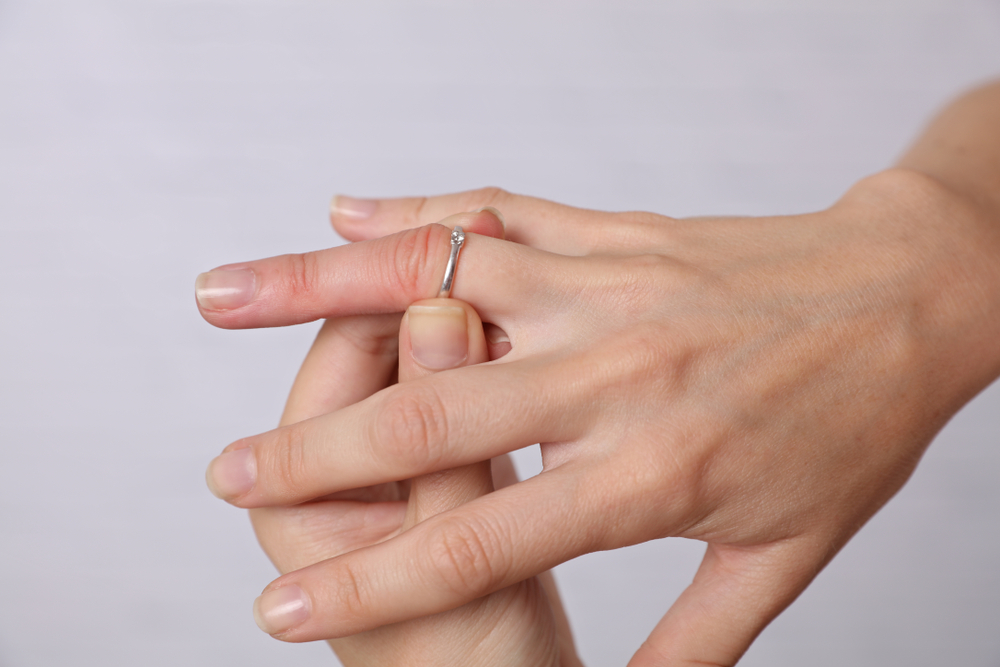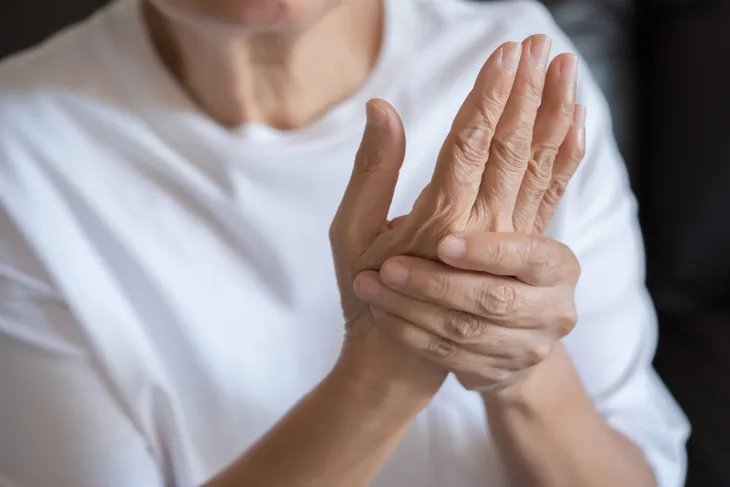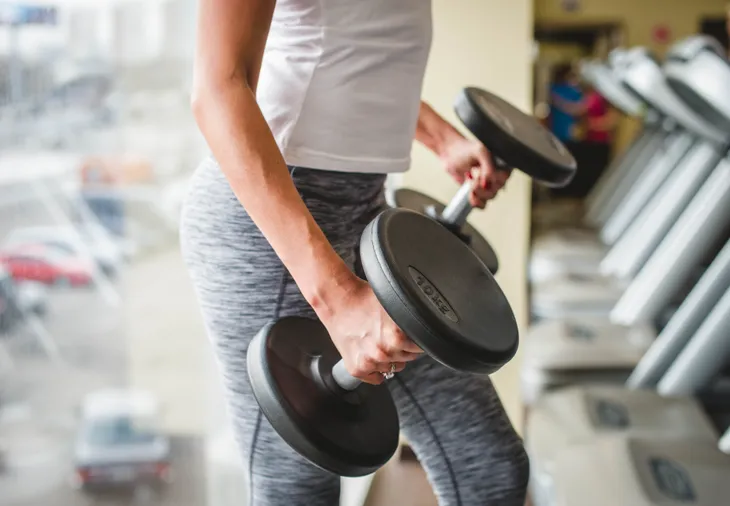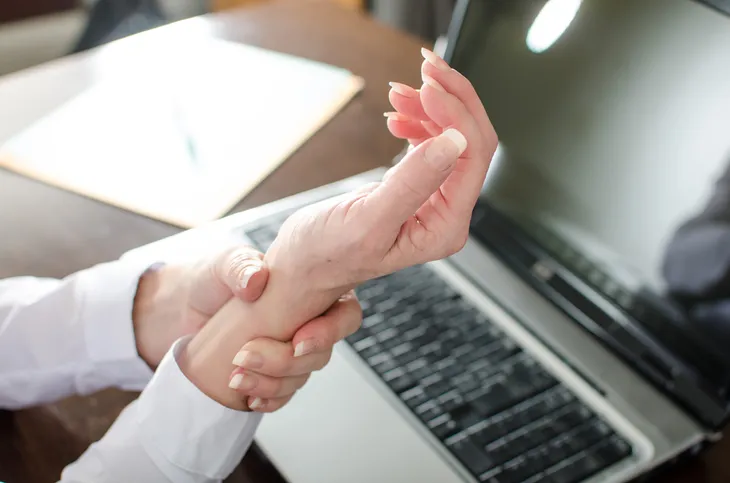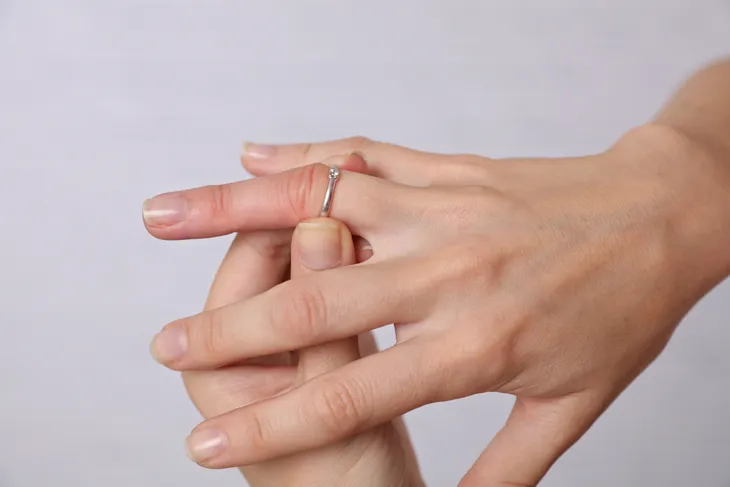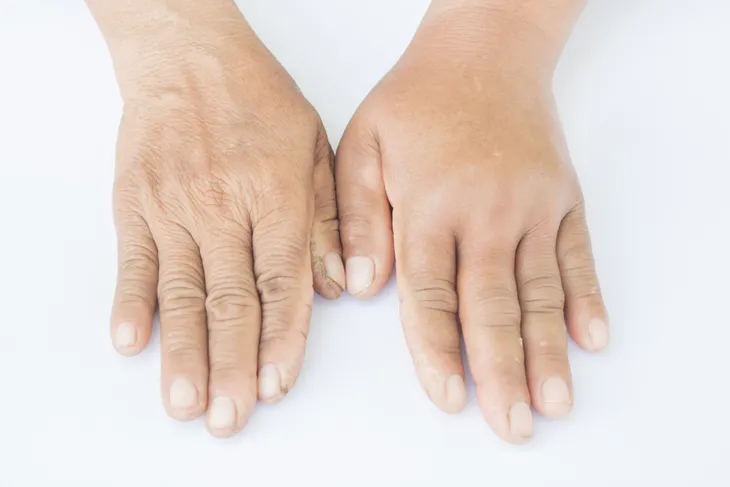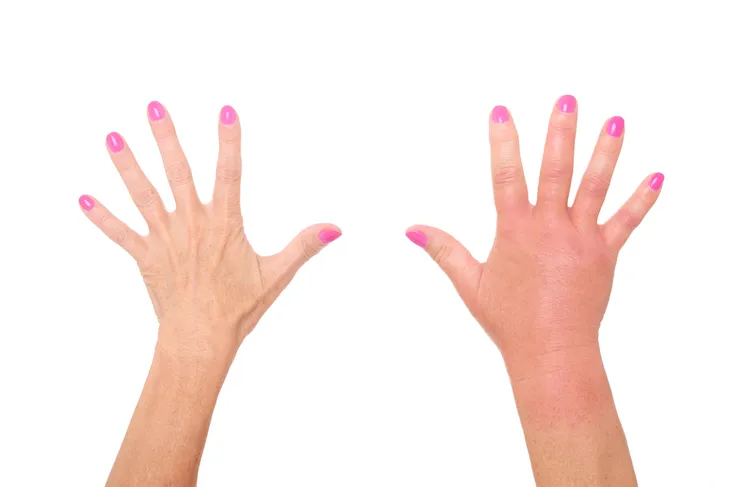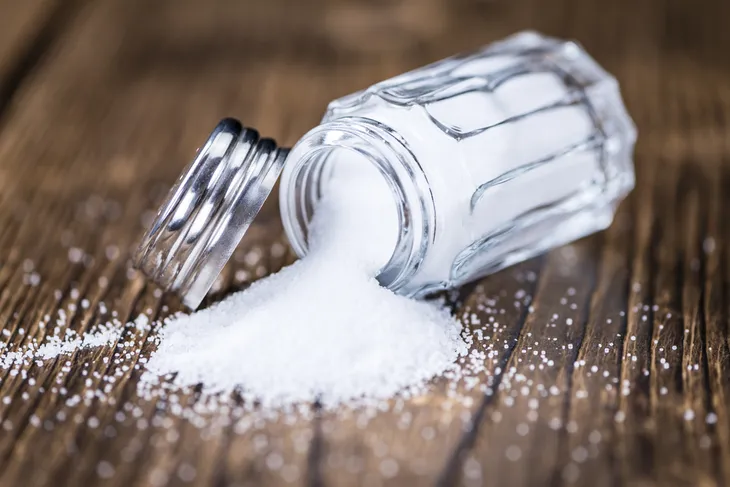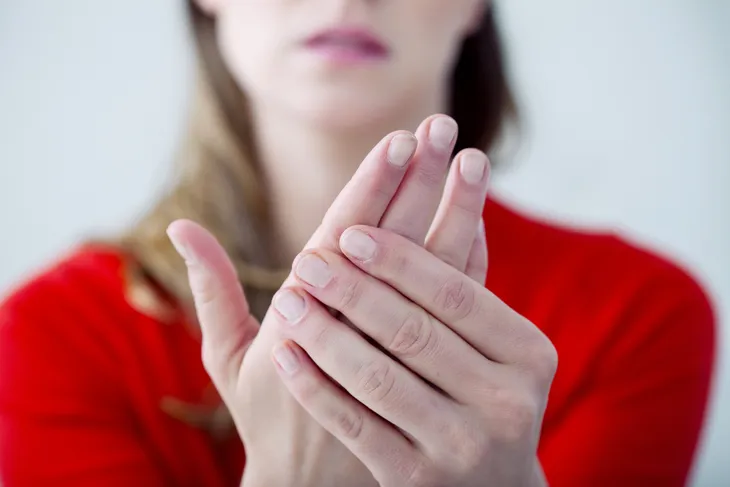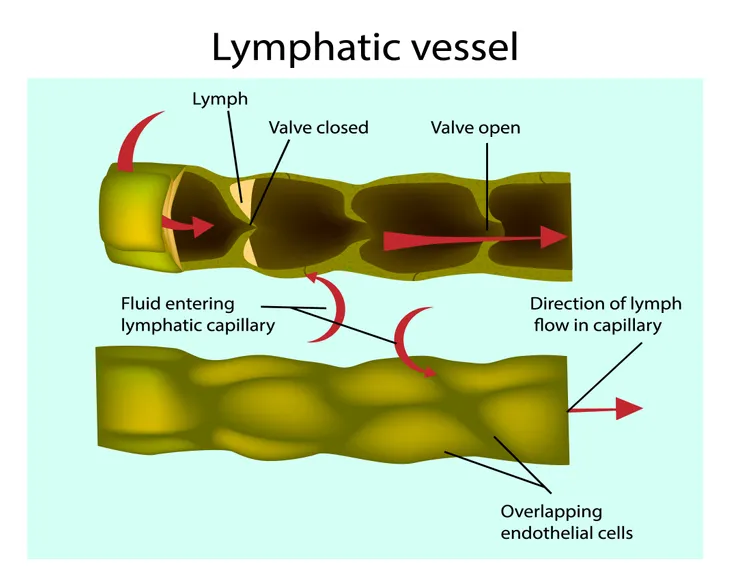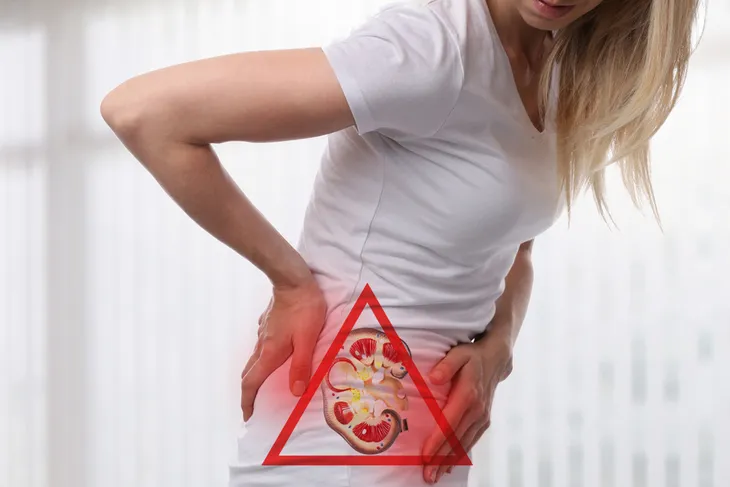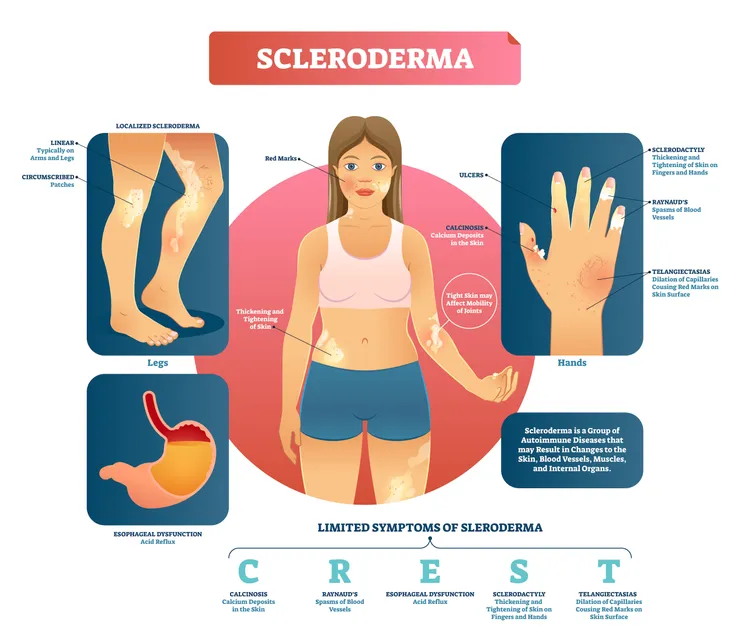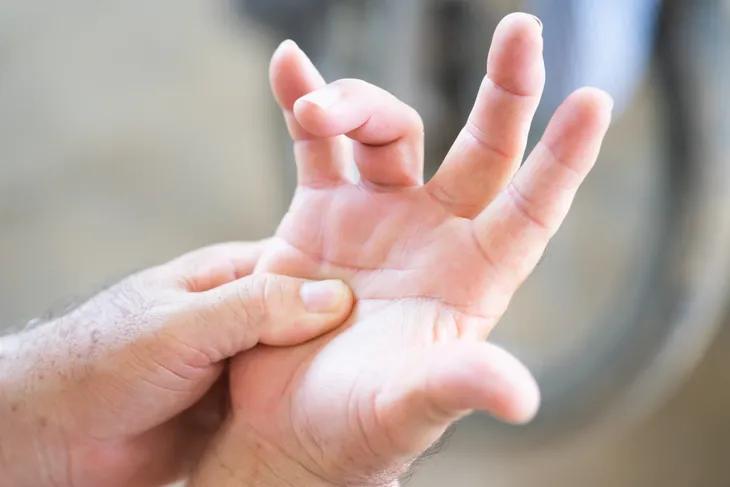Swelling can happen anywhere in the body, but is most commonly seen in the hands, arms, feet, ankles and legs. It occurs when there’s extra fluid trapped in the body’s tissues. While it’s nothing to be overly concerned about, it can be quite uncomfortable, especially if you’re wearing jewelry!
A little bit of puffiness in the hands or fingers can occur for a number of different reasons, from eating too many salty snacks to being out in the blazing heat too long. Most of the time it’s not worth fretting about, but in some cases it can be a result of a medical condition or underlying illness that needs to be treated. If you’re someone who suffers from swollen hands or fingers, keep reading to find out what the culprit could be…
Arthritis
If the swelling in your fingers is mostly around the bony finger joints, the culprit may be arthritis. Osteoarthritis causes swelling in the fingers, especially in the morning. This age-related arthritis is caused by the “wearing down of the cushioning tissues at the end of your joints,” writes Prevention.
Rheumatoid arthritis (RA) is another type of arthritis that causes pain, stiffness, and swelling in the joints, particularly the hands. Unlike osteoarthritis, RA isn’t age-related. “RA can cause the joints to swell up as well as cause inflammation in between the joints,” says Neha Vyas, MD, a physician in the department of family medicine at Cleveland Clinic to Prevention.
Exercise
Even though we often exercise to see our bodies slim down, it can cause parts of our body, such as the hands, to become a little swollen. Healthline explains that because exercise increases blood flow to the heart, lungs, and muscles, it can reduce blood flow to our hands. This makes our hands cold. To counteract this, the blood vessels in the hands may open up, making the hands appear swollen.
Another reason our hands may become swollen during exercises is because our muscles begin producing heat. “In response, your body pushes blood toward the vessels closest to your body’s surface to get rid of some of the heat. This process makes you sweat, but it may also cause your hands to swell,” writes Healthline. For the most part, swollen hands during exercise isn’t anything to worry about. However, the source warns that it could be a sign of hyponatremia. Hyponatremia is a result of low levels of sodium in the blood. If this is the case, you’ll likely also experience nausea and confusion.
To avoid swelling in the hands during exercise remove all jewelry, do arm circles while exercising or expand the fingers and then form a clenched fist. Repeat this several times over. You can also try elevating the hands after exercise.
Carpal Tunnel Syndrome
Carpal tunnel is the nerve that runs down the forearm and into the palm of the hand. Carpal tunnel syndrome occurs when this nerve becomes pinched or squeezed at the wrist, explains Prevention after talking to Olsen Utset, MD, MPH, an associate professor in the rheumatology department at the University of Chicago. It can cause a number of different symptoms including pain, tingling, burning, numbness, as well as swollen fingers.
This condition is often caused by repetitive movements or trauma to the wrist, but can also be the result of stress, an under-active thyroid, or RA. While this condition is uncomfortable, WebMD assures that it can be treated and doesn’t often result in any lasting damage.
Pregnancy and Preeclampsia
There are many uncomfortable symptoms that come along with pregnancy and swelling is one of them! Women who are pregnant may experience swelling in their fingers, ankles, and feet. A certain amount of swelling is normal in pregnancy, but it should be monitored. Any sudden swelling, particularly in the hands and face, can be a sign of preeclampsia.
“Preeclampsia is a condition where blood pressure rises and causes other organ dysfunction,” explains Healthline. It can happen in women who are past the 20-week mark in their pregnancy, but has also been known to happen earlier or even after childbirth. It’s a serious condition that can be life threatening.
Hot Weather
Hot summer weather is nice, but it does come with some disadvantages. Ever find that your rings become a little tight on your fingers during the warm summer months? This is because when the body is exposed to unusually hot temperatures, it may have some trouble cooling down. “Normally, your body pushes warm blood toward the surface of your skin, where it cools down by sweating,” says Healthline. When the weather is extremely hot or humid, this process might not work properly. If it’s not working, fluid may buildup in the hands instead of evaporating through sweat.
On extremely hot and humid days, be sure to drink lots of water, limit sun exposure, and avoid exercising outside. Keep an eye out for signs of heat exposure such as a rash, increased body temperature, dizziness, fainting, or confusion. If you’re traveling from somewhere cool to a warm place, it can take the body a few days to acclimate to hot weather. Once it does, the swelling should go down.
Infection or Injury
According to Prevention, it is possible to get an infection in the fingers. It typically occurs around the tip, pad, or nail. When this happens it’s known as felons. “Infections can form in different ways, but dishwashing without gloves, manicures, ingrown nails, hangnails, and biting your nails can all transfer bacteria to your fingers and lead to swelling, redness, and throbbing pain,” writes Prevention. When it comes to infections, the key is to catch it and treat it early. Often these infections can be treated with warm water or saline soaks, as well as antibiotic ointment.
Minor traumas or injuries to the hand, such as cuts, torn ligaments, injured tendons, sprains, dislocations, puncture wounds, and even splinters, can also have this effect. If the injury doesn’t require immediate attention from a doctor, try applying a cold compress and treat with rest and over-the-counter medication. People who are in serious pain, having trouble using their hand, or notice any pus from the injury, should have it treated by a doctor.
Angioedema
Angioedema is a term used to describe an allergic reaction. According to Healthline, this allergic reaction “is a form of swelling in the deep part of the skin’s inner layer and below.” It results after the skin comes in contact with some kind of irritation which causes histamine and other chemicals to be released in to the bloodstream. “This can cause sudden swelling underneath your skin, either with or without hives,” writes Healthline. Angioedema typically affects the lips and eyes, but can also occur in the hands, feet, and throat.
While the symptoms of angioedema are similar to hives, this allergic reaction happens below the skin’s surface. It can cause symptoms like “large, thick, firm welts, swelling and redness, pain or warmth in the affected areas, [and] swelling in the lining of the eye.”
Too Much Sodium
You might not realize it, but your kidneys are constantly working to maintain a delicate balance of sodium and water in the body by filtering the blood all day long, “pulling toxins and unwanted fluid and sending them to your bladder,” writes Healthline.
When we consume too much sodium it makes it hard for the kidneys to remove this unwanted fluid. “This allows fluid to build up in your system, where it may collect in certain areas, including your hands,” adds the source. While it might not seem like that big of a deal, fluid buildup forces the heart to work harder to circulate blood, causing an increase in blood pressure. This can lead to high blood pressure which puts “extra pressure on your kidneys and prevents them from filtering fluid.”
Raynaud’s Disease
Raynaud’s disease is a rare condition that causes the arteries to narrow which limits the circulation of blood. According to Prevention, while the cause behind this condition isn’t completely understood, there are several known triggers including cold temperatures, stress, injuries to the hands, tissue damage, and even certain drugs such as high blood pressure or migraine medications. It’s also more common in women than men, says Dr. Utset.
People who have Raynaud’s disease will experience swelling, in addition to pain, prickling, numbness, and even color changes in their skin. These symptoms will occur in the fingers and toes when circulation returns, either from warming up or decreasing stress. “When an ‘attack’ comes on, your fingers may first turn ghostly white, but other parts of your body can also be impacted, such as your nose, lips, or ears,” writes the source.
Lymphedema
Lymphedema causes swelling due to a buildup of lymph fluid. This happens when the lymph system doesn’t drain properly and is often a side effect of cancer treatment.
WebMD explains that women with breast cancer are at a higher risk because they have lymph nodes in their armpit removed during treatment. The removal of these lymph nodes upsets the flow of lymph which can cause swelling in the hands and arms.
If a person is undergoing radiation treatment, this can make the problem worse. Lymphedema can also happen after cancer treatment has finished (in this case it’s called secondary lymphedema), and while it cannot be cured, with the right treatment it can be managed.
Side Effect of Medication
Certain medications can cause swelling in the fingers or hands. Medications like high blood pressure drugs, OTC pain meds, diabetes medications, steroids, and birth control pills have all been known to cause swelling in the hands as a general side effect, says Dr. Vyas when talking to Prevention.
WebMD adds that swollen or puffy fingers from medication isn’t usually cause for concern, but you can talk to your doctor if you’re worried.
Kidney Issues
The kidneys are responsible for cleansing the body by removing excess fluid and toxins. When they aren’t functioning properly, one of the first signs is puffiness in the fingers, feet, and around the eyes.
“When your kidneys aren’t filtering what needs to go out, the fluid stays within you,” says Dr. Vyas to Prevention. “The kidneys also help regulate the electrolytes in our body, so any type of kidney disease or kidney issue can affect this process.”
People with diabetes or high blood pressure are at a higher risk for developing kidney disease. The best way to prevent kidney disease is to properly treat and manage these conditions. In severe cases, a kidney transplant or dialysis may be necessary.
Scleroderma
Scleroderma is an autoimmune disease that causes the body to make too much of the protein collagen. “This thickens and hardens the skin and can affect other body parts too,” writes WebMD.
The symptoms associated with scleroderma include stiff and swollen fingers and can be experienced in different severities for each person. Some people may have mild symptoms, while others are more serious. Even though this condition is incurable, it can be treated, says WebMD.
Gout
Nicknamed the “rich man’s disease,” gout commonly affects people who eat large amounts of meat, seafood, and alcohol. While it typically affects the feet causing pain and swelling in the big toe, it is possible to get it in other joints including the fingers. “It happens when too much uric acid in your blood forms crystals in the joint,” says WebMD.
It can be treated with drugs to help ease the pain and prevent any future attacks.
Trigger Finger
Anyone with trigger finger likely knows it because this condition causes the finger to “snap like the sound of a trigger” when it’s bent or straightened. It causes swollen fingers, as well. WebMD explains that trigger finger occurs due to swelling around a tendon, usually after surgery for carpal tunnel syndrome. It’s common in people with diabetes or RA.
Trigger finger will sometimes get better on it’s own, but if it doesn’t get better, the finger may become stuck in a bent position. If this happens, seek treatment from a doctor.
